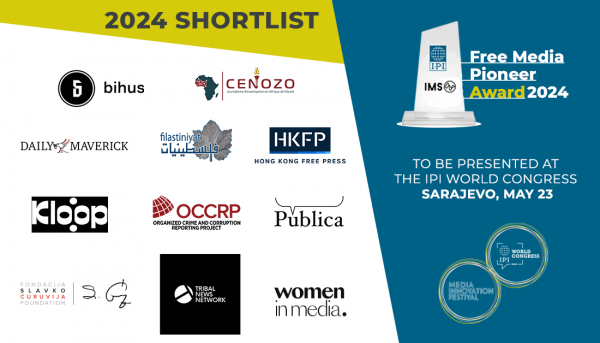The International Press Institute (IPI) today called on the Dominican Republic to protect its citizens’ right to information as the country prepares for the final month of a divisive presidential campaign.
The frontrunners in the election, scheduled for May 20, are Danilo Medina Sánchez of the ruling Dominican Liberation Party (DLP) and former president Hipólito Mejía Domínguez of the opposition Dominican Revolutionary Party (DRP). Both candidates have been rocked by scandal, the most recent coming when Media accused Mejía of seeking to instill chaos in neighboring Haiti through a coup d’état and thereby force a postponement of the Dominican Republic’s elections.
The turbulence of the campaign season has also underscored the rising threat to press freedom in the Dominican Republic. IPI has noted a troubling increase in acts of aggression against the media – directed particularly at journalists or whistleblowers involved in uncovering corruption.
In February, police sent a SWAT team to raid the homes and offices of a prominent journalist, apparently in an effort to uncover the journalist’s sources for an exposé on corruption involving several high-ranking members of the current government.
One of the targets of the paper’s investigation was reported to be Dominican Republic First Lady Margarita Cedeño de Fernández, who is also the DLP’s vice-presidential candidate. E-mails leaked to a blog in December appeared to reveal that the wife of a bank president had secretly supplied Cedeño with 1.6 million pesos (€34,000) of depositor money to futher the first lady’s campaign.
The recent coup accusations against Mejía emerged after a well-known investigative journalist, Nuria Piera, reported that a DLP senator had secretly supplied Haitian President Michel Martelly with more than $US 2.5 million during and after the latter’s 2011 presidential campaign. Medina has charged Mejía, working with an ex-army colonel, with taking advantage of Martelly’s weakened position as a result of Piera’s report to engineer an overthrow of Haiti’s government, according to local media.
Piera, who has emphasised in her reporting that her investigation was not politically motivated, expressed concern about government efforts to uncover her sources, urging intelligence agents “not to commit injustices.” In a statement posted to her Twitter feed, she suggested that reported raids on several homes and businesses in search of information about sources would not have taken place were her information false.
“During the past decade, the Dominican Republic enjoyed a stable and largely free media environment,” IPI Deputy Director Anthony Mills said. “However, over the past six months, a time period coinciding with the presidential campaign, press freedom has once again become a topic of discussion. We are very concerned in particular about reports that Dominican law enforcement officials are targeting journalists for their investigative reporting.”
Mills added: “Elections are tense times, and we strongly believe in the responsible exercise of journalism. But politicians in a democratic society – particularly those on a presidential ticket – must accept that their actions will be scrutinised. When Dominicans go to the polls on May 20, they will be deciding the future of their country. Only a strong and investigative media can help them make an informed choice.”
IPI remains concerned at the Dominican Republic’s active application of criminal defamation laws. In January, a radio journalist, Johnny Alberto Salazar, was convicted of libelling a lawyer and sentenced to six months in prison and fined 1 million pesos – 500 times the maximum allowed under the country’s laws.
“Criminal-defamation laws, whether during election season or not, contribute to self-censorship on the part of the media,” Mills explained. “And that is something that no democracy can afford.”
IPI is currently involved in discussions with several governments across the Caribbean, including the Dominican Republic, as part of an effort to abolish the region’s criminal defamation laws. In June, IPI will lead a mission to the Dominican Republic to meet with media and government representatives on the issue.
The Dominican Republic’s current president, Leonel Fernández Reyna (DLP), comfortably won election to a second consecutive four-year term in 2008 with nearly 54% of the vote. Fernández was also president from 1996-2000. The DLP holds clear majorities in both houses of congress: the Senate and Chamber of Deputies.


